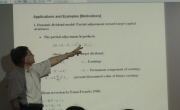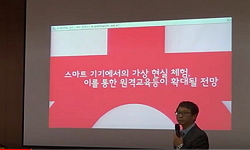PURPOSES: This study is to predict the Sound Pressure Level(SPL) obtained from the Noble Close ProXimity(NCPX) method by using the Extended Kalman Filter Algorithm employing the taylor series and Linear Regression Analysis based on the least square me...
http://chineseinput.net/에서 pinyin(병음)방식으로 중국어를 변환할 수 있습니다.
변환된 중국어를 복사하여 사용하시면 됩니다.
- 中文 을 입력하시려면 zhongwen을 입력하시고 space를누르시면됩니다.
- 北京 을 입력하시려면 beijing을 입력하시고 space를 누르시면 됩니다.
https://www.riss.kr/link?id=A101760658
- 저자
- 발행기관
- 학술지명
- 권호사항
-
발행연도
2014
-
작성언어
Korean
- 주제어
-
등재정보
KCI등재
-
자료형태
학술저널
- 발행기관 URL
-
수록면
59-66(8쪽)
- 제공처
-
0
상세조회 -
0
다운로드
부가정보
다국어 초록 (Multilingual Abstract)
PURPOSES: This study is to predict the Sound Pressure Level(SPL) obtained from the Noble Close ProXimity(NCPX) method by using the Extended Kalman Filter Algorithm employing the taylor series and Linear Regression Analysis based on the least square method. The objective of utilizing EKF Algorithm is to consider stochastically the effect of error because the Regression analysis is not the method for the statical approach. METHODS: For measuring the friction noise between the surface and vehicle’s tire, NCPX method was used. With NCPX method, SPL can be obtained using the frequency analysis such as Discrete Fourier Transform(DFT), Fast Fourier Transform(FFT) and Constant Percentage Bandwidth(CPB) Analysis. In this research, CPB analysis was only conducted for deriving A-weighted SPL from the sound power level in terms of frequencies. EKF Algorithm and Regression analysis were performed for estimating the SPL regarding the vehicle velocities. RESULTS : The study has shown that the results related to the coefficient of determination and RMSE from EKF Algorithm have been improved by comparing to Regression analysis. CONCLUSIONS : The more the vehicle is fast, the more the SPL must be high. But in the results of EKF Algorithm, SPLs are irregular. The reason of that is the EKF algorithm can be reflected by the error covariance from the measurements.
동일학술지(권/호) 다른 논문
-
아스팔트포장의 표면처리에 사용되는 유화아스팔트의 접착력 특성 평가
- 한국도로학회
- 임정혁,김영수,양성린
- 2014
- KCI등재
-
중질유 고도정제 부산물의 도로포장용 역청재료로서의 적용성 평가
- 한국도로학회
- 양성린
- 2014
- KCI등재
-
3차원 지반재료 모델기반의 다양한 지주형상을 갖는 노측용 가드레일의 동적성능 평가
- 한국도로학회
- 이동우,여용환,양승호,우광성
- 2014
- KCI등재
-
강우강도에 따른 아스팔트 혼합물 종류의 수분민감도 평가
- 한국도로학회
- 정종석,김용락,이상혁,김효진
- 2014
- KCI등재






 코리아스칼라
코리아스칼라





